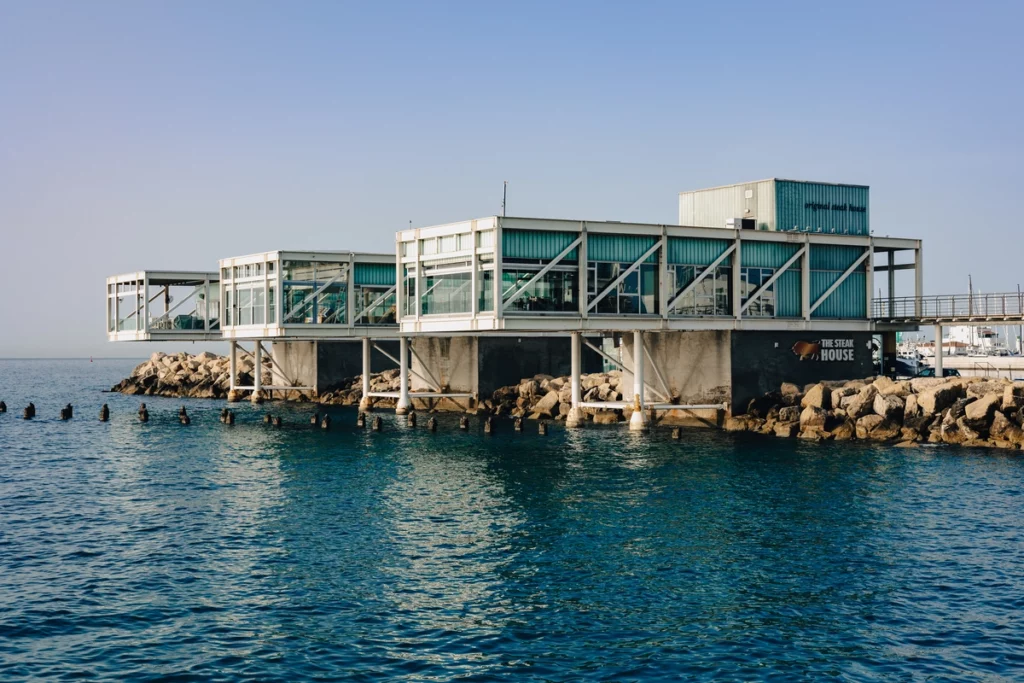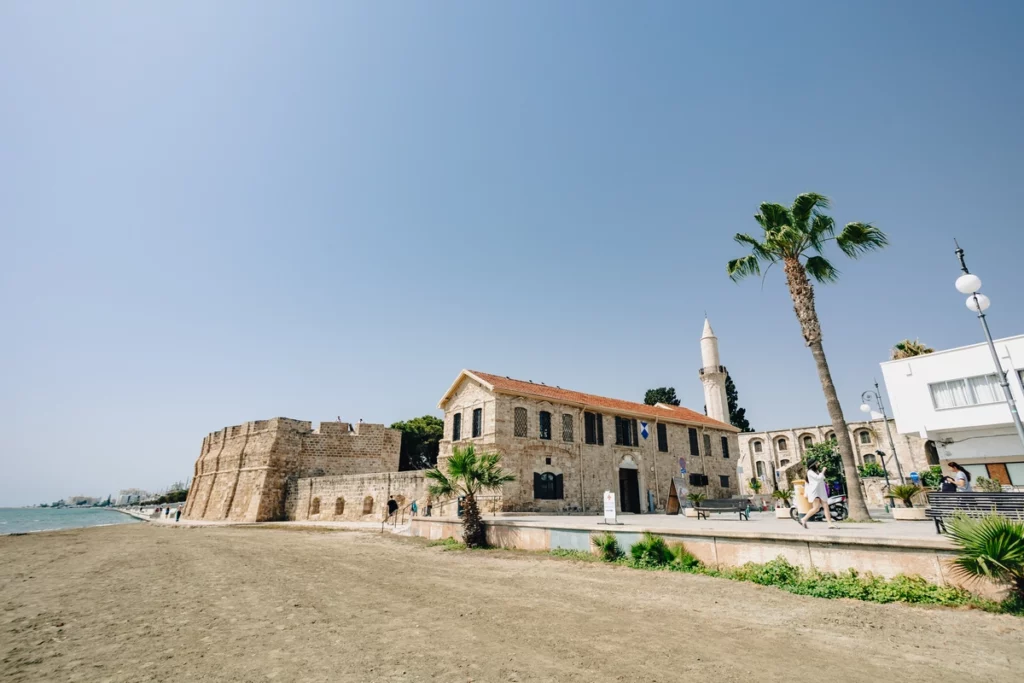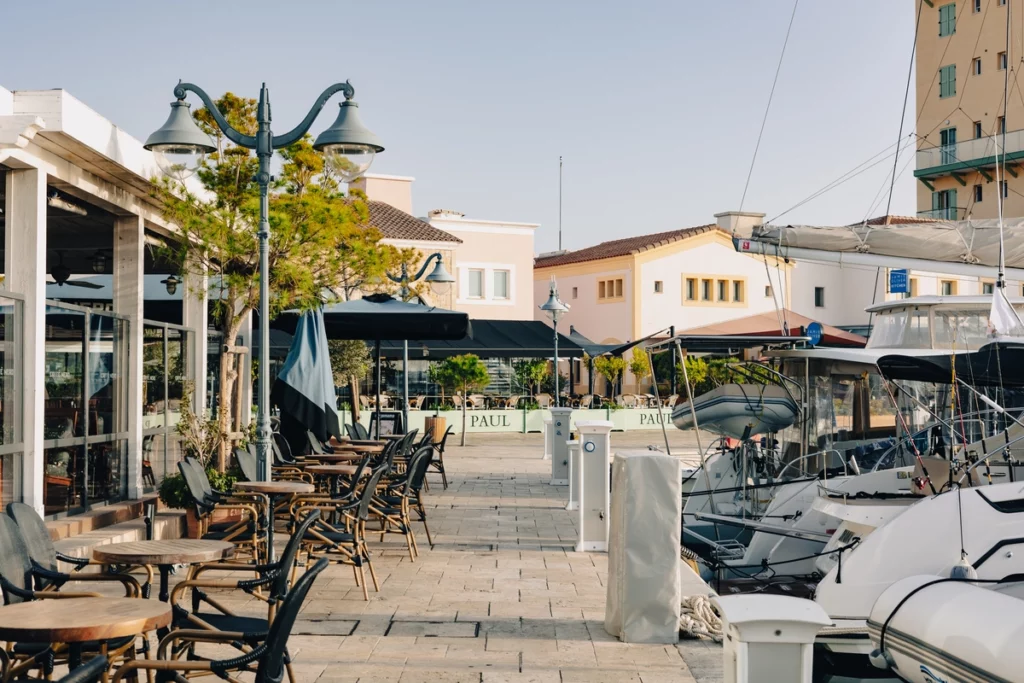Why Choose Permanent Residency in Cyprus via Property Purchase?
Foreigners who hold a residence permit in Cyprus, i.e. temporary residence, are required to renew it annually or every few years, depending on the conditions under which it was obtained. Only after five years of continuous residence on the island can a resident apply for permanent or indefinite residency, and after another 2–3 years, they can apply for citizenship.
There is only one exception: you can obtain permanent residency for yourself and your family in just six months by participating in the government’s residency investment programme.
Investors can choose one of the following participation options:
- Purchase of residential or commercial property;
- Investment in local business (acquiring shares of Cypriot companies);
- Acquisition of units in local investment and development funds.

Regardless of the option chosen, the investor will need to confirm their residential address on the island. Therefore, even if they acquire shares in a local company, they will still need to either buy property for living or rent it long-term, which will incur additional expenses.
The most reliable way to capitalise on your assets is by purchasing property in one of the most promising markets in the EU.
Currently, Cyprus’s real estate sector is experiencing its highest level of vitality in the last 15 years: from January to November 2022, 12,074 properties were sold, which is a third more than the same period in 2021. Moreover, foreign buyers represent a record 43% of all home purchases!
According to recent data from consulting firm WiRE FS, apartment prices increased by 3.9%, house prices by 1.1%, and office prices by 0.6% in the third quarter of this year compared to the second quarter.
The rental market is also on the rise, boosting the profitability of investments and overall demand for real estate.
What Language is Spoken in Cyprus?
The official language of the Republic of Cyprus is Greek, though locals take offence at comparisons with their Greek neighbours.
Cyprus was a British colony from 1878 to 1960—over 80 years—so English is also widely spoken here. Knowledge of English is a significant advantage for locals when applying for jobs.
Most of the population speaks English fluently, making communication, business dealings, and studies as comfortable as possible.
According to Forbes, at the beginning of this year, Russians made up about 6% of the total population, so finding people who speak your native language is not a problem. One of the island’s largest cities is jokingly called “Limassolgrad.”
You only need to learn Greek if you plan to acquire Cypriot citizenship. For this, you will need a B1 level of Greek, along with knowledge of the country’s culture and history.
How Many Months is it Warm in Cyprus?
Cyprus has a subtropical Mediterranean climate. Summer here lasts for about 8 months, while the remaining 4 are winter months, though daytime temperatures rarely drop below +10°C. Due to the abundant sunshine, Cyprus has a high UV index.
Another challenge, which concerns many, is the absence of central heating. Even when winter temperatures are positive, homes can cool down quickly. Heaters or air conditioners can help, but they come with electricity bills reaching several hundred euros.
How Much are Utility Bills?
Monthly utility expenses vary depending on the number of residents, the size of the property, and the season. Location also plays a significant role—the closer a property is to the coast, the higher its maintenance costs.
Approximate monthly costs for basic utilities (electricity, water, heating, air conditioning, waste removal) in an 80-square-metre apartment, plus internet:
- Limassol: €300 — €500
- Larnaca: €200 — €300
- Paphos: €250 — €300
Transportation in Cyprus?
Public transport is poorly developed, so owning a car is the ideal and most comfortable option.
How Does Temporary Residency Differ from Permanent Residency in Cyprus?
A Temporary Residence Permit (TRP) is usually issued for 1 year, with the option of renewal.
A Permanent Residence Permit (PRP) is granted indefinitely, depending on the programme. The resident only needs to renew the PR card periodically.
With PRP, you hold a status superior to TRP holders. As a permanent resident, you enjoy rights similar to those of a citizen, with fewer obligations: you cannot vote, serve in the army, or hold public office.

Conditions for Obtaining Permanent Residency through Property Purchase
The main requirement is the purchase of real estate worth at least €300,000. This amount can be used to buy one or two properties. The programme covers both residential and commercial properties, but they must be newly built and purchased from a developer. The acquisition of resale properties is not allowed.
The investor must have no criminal record and be over 18 years of age. Additionally, the investor must demonstrate an annual income from abroad of at least €50,000. If family members are included in the PR application, this amount increases by €15,000 for a spouse and by €10,000 for each minor child.
Individuals whose assets are under EU sanctions cannot participate in the programme.
Once PR is approved, the investor is required to visit Cyprus only once within 12 months to provide biometric data and collect the permanent residence permit card.
Applicants must not be employed in Cyprus, though they are allowed to own businesses on the island and receive income from them.
Cyprus is a well-established hub for profitable investments and tax optimisation, with its favourable tax regime and strong reputation.
Get a personalized assessment of your situation
Phone
Benefits of Permanent Residency through Property Purchase
- You can submit documents for PR remotely or via a representative.
- There are no limitations on the length of stay or absence from the island. You are not required to live there permanently or for a specific number of days per year.
- You only need to visit Cyprus once every two years.
- After five years of continuous residence, you may apply for Cypriot citizenship. Typically (outside the investment PR programme), citizenship is granted after a minimum of seven years of residence, with an exception of three years for those applying through marriage.
- A favourable tax regime and ease of doing business: Cyprus is renowned for its tax advantages and the absence of taxes on global income, interest, dividends, and inheritance. These factors make Cyprus a highly attractive location for business and investment.
- After registering with the GESY healthcare system, you gain access to healthcare services—some are free, while others are available at affordable prices.
- Your property is a liquid asset. With tourism accounting for 20% of Cyprus’s GDP, rental prices during the tourist season rise steadily by 1-4% per year.
- Future potential: Cyprus is currently not part of the Schengen Zone. However, when Cyprus joins, PR holders will gain the right to travel freely within Schengen countries without visas or restrictions.
- PR is indefinite—it remains valid as long as you own your investment property. You can also sell the property and immediately replace it with another of equal or higher value, ensuring the continuity of your PR.
- Cyprus offers security and stability. In the 2019 global safety rankings, Cyprus was 32nd, with a safety index of 8.88, placing it among the safest countries worldwide. Serious crimes or terrorism are rare, and there are no “unsafe” areas.
- Expats enjoy a welcoming business environment and a vibrant English-speaking community.
- High-quality education: Cyprus has an adaptive education system, from international schools to globally recognised universities.
- A high standard of living: Cyprus offers excellent infrastructure, world-class healthcare, and quality education institutions.
- Living in a country with near-year-round sunshine, a comfortable climate, and stunning beaches.
Who Else Can Obtain Permanent Residency Alongside the Investor?
- The spouse of the applicant (a marriage certificate from a third country is acceptable);
- Children aged 18-25 if they are financially dependent on the investor, enrolled in education, and unmarried.
- Unfortunately, under the updated rules, parents of the applicant cannot be included.
Potential Drawbacks for Prospective Cyprus Residents
- The property must be purchased before submitting the PR application, as proof of purchase is required in the documentation. However, the risks are minimal, as refusals are rare. Reasons for refusal may include providing false information, a criminal record, or posing a threat to national security or the state’s reputation.
- While Cyprus is part of the EU, it is not yet a Schengen member. Thus, it’s unlikely that visa-free travel throughout Europe will be possible in 2023. However, with PR, you can obtain a Schengen visa from Cyprus in just 1-2 weeks.
Cyprus’s geographic isolation from the Schengen Zone allows it to maintain maximum autonomy regarding immigration matters. While many other investment residency programmes have suspended applications from Russian citizens, Cyprus continues to issue PR, regardless of the investor’s nationality.
Stages of Obtaining Permanent Residency through Property Purchase
Step 1: Preliminary Assessment of the Investor and Property
You contact our lawyers, who will request a set of documents and conduct a preliminary assessment of your case to evaluate its chances of success.
What do they assess?
- Official income and proof of it;
- Tax payments;
- Absence of a criminal record or open legal cases;
- Visa refusal history;
- Whether your name appears in international criminal databases.
There are virtually no restrictions on real estate purchases by foreign nationals, but there are some potential pitfalls. For example, some developers purchase land on mortgage, which means that in case of their bankruptcy, the buyer of the property may become liable for the mortgage.
Additionally, if there are any financial obligations or encumbrances on the property, the ownership documents can only be obtained after they are cleared.
The lawyers’ job is to protect you from such risks. They will review the property’s documentation to ensure that the ownership is valid and that the land is not mortgaged.
Step 2: Property Purchase
You must buy the property before submitting the PR application, as the purchase contract or proof of ownership is part of the application. Initially, the investor can reserve the property by paying a 10% deposit while the lawyer and the seller finalise the terms of the sale.
Then, the documents are signed, and the payment is made (in full or in instalments, depending on the contract terms), along with a 19% VAT, 14% of which can be reclaimed later as a tax refund, provided certain conditions are met.
Step 3: Registration with the Land Registry
The maximum submission deadline is two months from the date of contract signing.
Once the documents are signed and the payment is made (either in full or in instalments, depending on the terms of the contract), the investor will need to pay VAT of 19%. However, under certain conditions, 14% of this VAT can be reclaimed as a tax refund.
FAQ on Cyprus Residency Programmes
Our expert and Astons’ Cyprus representative, Denis Kravchenko, answers the most common questions about obtaining Permanent Residency or purchasing property on the island.
Can I travel to all Schengen countries visa-free with Cyprus permanent residency (PR)?
No. Cyprus is part of the European Union, but it is not yet part of the Schengen zone.
The EU is a political union of 27 independent countries that have formed the Eurozone with a common currency — the euro.
The Schengen zone consists of 27 countries with open borders, meaning you can travel without visas within the Schengen area. But don’t worry— with Cyprus PR, you can easily obtain a Schengen visa directly on the island in just a week, without needing to return to Russia. However, with a Cyprus passport, you will have access to the Schengen zone and over 140 other countries!
Can I obtain Cyprus citizenship after PR?
Is it still necessary to leave a deposit in a bank when purchasing real estate to obtain PR?












